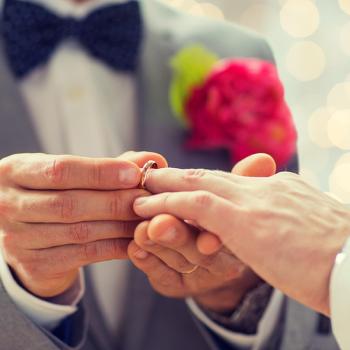When I first heard that there was a huge debate on Critical Race Theory (CRT), I was taken aback. I legitimately had to ask around and do some reading so that I could understand what people’s issues with it were. But as I’ve seen the Christian community get up in arms on this topic, I’ve seen something that is worth being examined: in the name of fighting for rightness and theological purity, Christians have tended to hate anything that has even an iota of a claim they disagree with.
However, there is so much wrong with the way that we as Christians have villainized Critical Theory. In the words of Mark Driscoll, “Critical Theory is the biggest threat to the Gospel.” That is a massive statement, and I’m at times at a loss how it can be seen as our greatest enemy. For one, why on earth would making something that exposes and grieves racism be the enemy? There is so much as Christians that we can and I believe should affirm.
If you’re unfamiliar with Critical Theory, CRT is just one of several aspects of Critical Theory as a whole. Critical Theory, as defined in the dictionary is, “a philosophical approach to culture, and especially to literature, that seeks to confront the social, historical, and ideological forces and structures that produce and constrain it.” In other words, CT is a way of looking at culture to see the ways that systemic biases have swayed events and art. As someone who studies English Education in college, I have often seen this used in an English classroom by having us choose a lens (CRT, Feminist Theory, Environmental Theory, Post-colonial Theory, etc) to look at the book we were reading through that lens. This was incredibly helpful. To read a slave narrative written in the 1700s by a woman and discuss the ways societal forces affected her work and the reception of it is important work.
However, not all see it as important or helpful. The arguments I have heard and read against Critical Theory (CT) from Christians are as follows:
1. CT makes our identity primarily about factors other than being children of God.
2. CT has no teleology. There isn’t a hope of restoration, it just points out what is wrong.
3. It says that “evil is big and God is small.”
Let’s go through these arguments one at a time and see if they are worth making CT the enemy. First off, I have found that many people who are largely against CT have not engaged with pro-CT texts or people. This is important. Going to a secular university, I have been taught CT firsthand by people who hold to it and its importance. Because of this, I see the beauties of it that many miss when they only listen to people that don’t like it. So, let’s get started.
Critical Theory and Identity
When I first got to college, we had to sit in a lecture hall and create a pie chart where we showed the different aspects of our identities and how much they affect us. I remember being struck by this, and feeling like it wasn’t a full picture of who I was. A friend of mine later told me that he just wrote “child of God” in his circle. That’s awesome. And I think that our identity in Christ does affect the way we see ourselves for sure, but it would be overlooking a lot to say that we have no other identities that affect how we live in the world. A white man will be treated differently in public than a black woman. That is true. I am not saying the white man’s life is not difficult, but that his race has not been a hindrance in how he is received.
It is actually a privilege for us not to have to think about our other identities. If you do not have to think about your race, gender, or class, you are likely in a privileged place. This is not to cause guilt, but it is to say that these aspects of ourselves are important and matter for how we live in the world. In Genesis 1 it says, “In the image of God he created them. Male and female he created them.” I bring this up because this is to say that God acknowledges more of our identity than just as his children. He acknowledges our gender. In the New Testament, Paul talks often about how this promise is for both the Jews and the Gentiles. God takes our ethnicity into account. We can too, and we can do so in a way that does not jeopardize our view of seeing ourselves as God’s children.
Critical Theory and Restoration
Many, even non-Christians, have critiqued the ways that CT is good at pointing out the problems, and not as good as pointing out solutions. This is absolutely fair. Critical Theory is often looking at the past to see the ways the injustice of the past has crept into our present day and corrupted it. (In short, one could think of Critical Theory as the study of sin and how it leads to not everyone being treated with dignity in the image of God). All this to say, many Christians rebuke CT for not offering any hope and only pointing out problems.
I’m not sure, however, if this is a reason for Christians to walk away and reject Critical Theory. I wonder instead, if it would be a way for us to come into the scene and offer the restoration hope that is offered us by God. We have it. We have the hope that one day all things will be made new and there will be no more crying and pain anymore for the former things have passed away. Former things gone (like racism and oppression). What a hope! This is not to say that we should not be honest about the deep pain and problem of injustice now, but it is to say we have something to look forward to: an end in sight as we fight on this side of eternity for justice and peace. This makes it seem that Critical Theory is not a threat to the Gospel, but perhaps something compatible with it, that could find a deeper wholeness through the hope of glorification.
Critical Theory and Evil vs. God
I have also heard the argument against Critical Theory that it makes it seem as though “evil is big and God is small” and sure, I can agree with that. CT definitely focuses on the evil of the world and its effect on people and culture. However, I think Christians need to be mindful of the way that our response can be translated to those outside of Christianity. When we push back so hard on Critical Theory, I think sometimes people hear us saying, “Evil is small and God is big” which I don’t think is the message we want to send. I think the message we are called to bring forth is that evil is big and God is even bigger. We have to acknowledge the suffering of this world. Jesus himself came down to Earth to experience the ways that this world can really harm people. He knows what it is like and did not shy away from it. However, we also did not shy away from his belief that his Father was ultimately in control and that evil would one day be defeated. It can be both/and. God is not so small that we have to pretend evil doesn’t exist to make him seem big. He is already mighty.
Examining our Frustrations
I know that this article is on the controversial side to some people, and will likely not be received very well. But I wonder if we can sit with the ways we struggle with Critical Theory. I’ll be honest, when I first was learning about it, I struggled to get on board because it felt like we weren’t supposed to over-emphasize justice issues as Christians. But also, as a white person I am in a place of some privilege and it is uncomfortable to open my eyes to the ways that I go through life are different than those of my black brothers and sisters. So I guess I wonder, what are we protecting by not embracing Critical Theory? And what could that show we are actually worshipping? If we actually worship the U.S. we will be against anything that speaks negatively of it. If we worship our comfort, we will be against anything that makes us uncomfortable. My professor the other day said, “When you’re accustomed to privilege, equality feels like oppression.” This is important to think about. Equality is the goal. It is our eternal aim. And I believe we can actually work toward hope and justice by being truth-tellers of the difficult parts of this world, of sin. If all truth is God’s truth, we are able to tell the truth about injustice, and know that it does no harm to the truth of God to talk about these important things. In fact, it may do harm to not talk about them.
Emily Zell is from Saint Louis, Missouri and is a senior at the University of Missouri studying Secondary English Education and Art History. In her free time, she enjoys reading, writing, thinking, and doing stand-up comedy.













